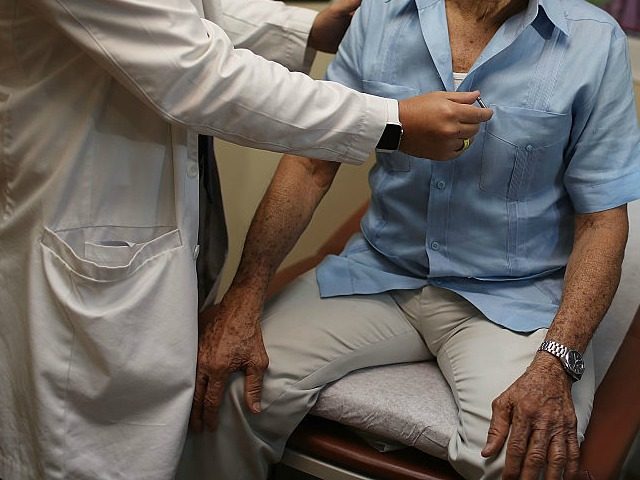A newly-tested medical implant can predict heart failure up to a month in advance, according to a report.
“Researchers tested the concept with 900 heart failure patients for one year. They uploaded software to each patient’s implanted defibrillator, a battery-powered device that delivers an electric shock if the patient’s heart stops beating,” explained the report on testing done at Penn State. “The software allowed the defibrillators to monitor the patients’ heart rate, activity, breathing, heart sounds, and electrical activity in the chest.”
“Over the study period, the suite of sensors detected 70 percent of heart failure events in patients. This detection was often more than a month before the events occurred,” it continued. “Sensitivity at this level far exceeded the researchers’ goal of greater than 40 percent detection. While there were false positives, the number was within an acceptable range.”
Cardiologist and Professor of Medicine at Penn State College of Medicine, John Boehmer, presented the discovery of the test at the annual American Heart Association meeting in New Orleans.
“This is a new and clinically valuable measure of worsening heart failure, and it combines a number of measures of the physiology and heart failure, much like a doctor will look at a patient,” claimed Boehmer. “Doctors look at all their signs and symptoms, get some tests, and put it all together and make a decision about how well or ill the patient is. HeartLogic does it similarly.”
“It integrates a number of measurements of what’s going on with the patient, including breathing, activity, and heart sounds, and puts that all together to give us an index that we believe is both sensitive and specific for heart failure,” he continued. “It’s like having high blood sugar, if you’re managing diabetes… The doctor doesn’t need to know about every high blood sugar and every high blood sugar doesn’t result in a hospitalization.”
“But you want to treat it before it gets very high and the patient becomes so symptomatic they become ill and end up in the hospital,” Boehmer concluded. “This is the same concept.”
Charlie Nash is a reporter for Breitbart Tech. You can follow him on Twitter @MrNashington or like his page at Facebook.

COMMENTS
Please let us know if you're having issues with commenting.